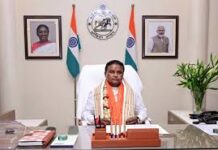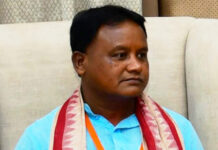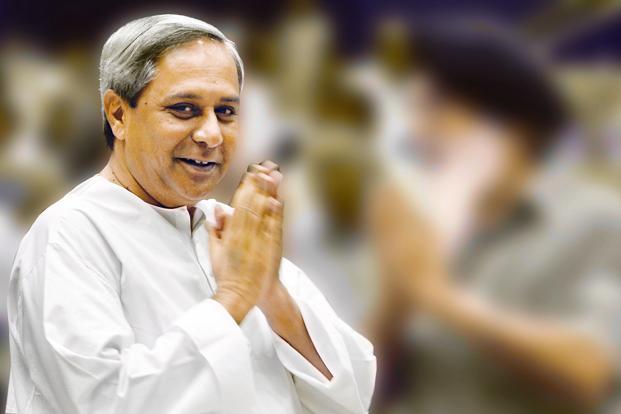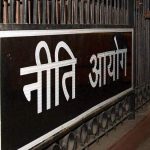At a time when UP chief minister Yogi Adiya Nath is facing allegations of dancing to the tunes of bureaucracy, the team of bureaucrats in Odisha is doing wonders. It has transformed the image of the state which is now known for its industries, its sports infrastructure and for its wonderful pro-people schemes. All this has been possible because chief minister Naveen Patnaik has mastered the art of making the bureaucrats work efficiently.
When Swami Prasad Maurya and Dara Singh Chauhan, two senior ministers in the Yogi Aditya Nath government quit recently and joined the Samajwadi Party recently, one of the reasons cited for his decision to change sides before the assembly elections in the state was their dissatisfaction with the way the chief minister was running the government. Generally considered to be a tough administrator Yogi was seen by some as being a bit too dependent on a coterie of bureaucrats. This has led to disaffection even among BJP leaders who are not part of the government. However, to be honest Yogi is not the only chief minister of the country to give bureaucrats a free hand in running the government. In fact, most chief ministers depend heavily on bureaucrats to get work done efficiently.
It all depends on how a chief minister picks his key bureaucrats and how he handles them. A case in point is Odisha chief minister Naveen Patnaik who has also been accused of depending too much on bureaucracy but has been running one of the most popular and efficient governments in the country. If he is currently ranked among the top chief ministers of the country it is primarily due to the success of his team. Right from his own secretary VK Pandian to chief secretary Suresh Mohapatra, who has been given an extension, his choice has been excellent. His core team includes several other names including Mission Shakti director Sujata R Karthikeyan, former chief secretary and western Odisha development council (WODC) chairperson Asit Tripathy and his OSD R. Vineel Krishna.
He has been using his bureaucratic resources without disturbing the fine balance between the political executive and the bureaucracy. In Odisha, too, there were allegations in the past about too much bureaucratic control over the government. Some opposition leaders even accused senior bureaucrats of ignoring and humiliating public representatives. But no one has ever been able to come up with even an iota of evidence either to prove these charges or to prove the inefficiency of any senior bureaucrat.
On the contrary people appear to be more than happy with the way the government is being run which is evident from the way they have been voting for the chief minister election after election. The general feeling is that people’s representatives, especially those belonging to the opposition parties, are complaining because they are not being allowed to manipulate things in their favour.
Patnaik’s model of governance has become immensely popular because it has transformed the image of a backward state like Odisha, making it not only industrially rich but also highly successful in the field of agriculture and sports. While Odisha is today considered to be India’s favourite investment destination because of its rich mineral resources and industry-friendly atmosphere, it has come up with some of the most innovative schemes for the development of farmers. An excellent example is the KALIA scheme which seeks to make them self-reliant instead of dependent on government loans and takes care of the interests of sharecroppers as well as agricultural labourers.
The state now figures prominently on the sports map of the country having hosted big ticket events like the Men’s World Cup hockey-2018 and the Junior World Cup hockey. Its contribution to the transformation of Indian hockey has been appreciated across the country.
All this has been possible because of exquisite planning and the hard work of a dedicated team of bureaucrats who worked day and night under the guidance of chief minister Naveen Patnaik to change the image of Odisha. Time was when the very mention of the state evoked images of poverty and starvation deaths. There were another set of devout Indians who identified the state with Puri as it happened to be the land of lord Jagannath. Now even as lord Jagannath continues to bless Odisha as its presiding deity no one talks about poverty or starvation deaths. The images now associated with the state are that of industrial development and progress in the field of agriculture and sports. Odias across the globe can now be genuinely proud of their state.
The credit for all this goes to the chief minister and his right choice of bureaucrats to carry out important tasks. While he put faith in the ability of his bureaucrats he also gave them a lot of freedom which was necessary for the accomplishment of the tasks given to them. This might have hurt a section of political leaders who want a subservient bureaucracy because it suits them but Patnaik has never felt the need to oblige such leaders whether in his own party or in the opposition.
The success of a government depends on a number of factors, the most important of these being the right balance between the political and the permanent executive or the bureaucracy. While formulation of policies remains the job of the political executive and laws are framed by legislators their implementation is the job of government servants at various levels. The top ladder of government servants, that is the members of Indian Civil Service play the most important role. They have proved umpteen times that they are masters at building up systems that keep running the country.
They put in place mechanisms, decide upon the responsibilities of lower level bureaucrats and then get the job done. The political executive issues policy guidelines and unless actually necessary should desist from interfering in the work of bureaucracy. Hence if something goes wrong the blame must be taken by both political as well as permanent executive. However, if things click, as in the case of Odisha, it is the chief minister and the state at large that benefit the most. In that respect Patnaik has been extremely lucky. He has been picking his men carefully and assigning them the responsibilities that he is confident they can carry out efficiently. He has also given the bureaucrats the required freedom to carry out their responsibilities with utmost efficiency.








































